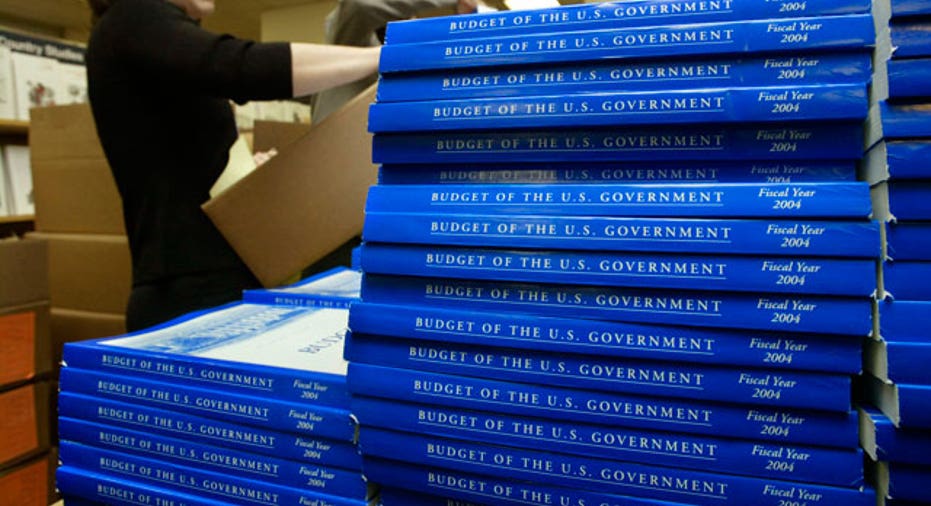Debt Ceiling duel May Floor Your Finances

Do you think the paralysis over raising the federal debt ceiling doesn't affect you? Think again.
If the current political gridlock prevails, and Washington defaults on its debt payment obligations, the economy would begin freezing up almost instantly, and it could be many years before it thaws.
There isn't a pocketbook in America -- or for that matter, most of the world -- that wouldn't be seriously impacted. And unlike with the collapse of 2008, a fiscally crippled government would perhaps have to stand by helplessly as the economic casualties mount.
Washington Hits the Ceiling
The term "debt ceiling" has been the subject of a great deal of complicated analysis in recent weeks. But the concept of the debt ceiling is actually quite simple. It is just a limit on the total amount of borrowing Uncle Sam can have outstanding at any one time.
The government has hit the debt ceiling before, and always raised it in time to avert a default on its obligations. But the current game of debt-ceiling chicken is stacking up as more than run-of-the-mill political brinkmanship. As the standoff continues, our livelihoods and financial security are held hostage.
If, in fact, the federal government goes into default on its debt, major consequences could immediately engulf financial markets and, by extension, everyone with a stake in the U.S. economy.
A Crash Course
First, you'd have a rapid re-pricing -- in a downward direction -- of all financial assets, not just Treasury debt. Why? Government debt is considered risk-free and America's "risk-free rate" is fundamental to the pricing of all financial assets, like stocks. Recall the mayhem of 2008 when asset prices plunged as panic spread.
But this time, there would be no place to hide. In 2008, nervous investors fled to the safety of U.S. Treasury securities. As an asset class, they performed well as a result. But in the event of default, this safe haven would no longer be a safe haven. The unthinkable would likely soon happen: America would see its enviably unblemished credit rating cut.
Any cut in the U.S. credit rating would cause a stampede out of Treasuries. That would produce a domino effect, with 401(k)s, IRAs and college savings accounts plunging in value as the holdings they're invested in melted down. Faced with a sell-at-any-price panic mode, even some pensions could have trouble meeting their obligations due to rapidly falling asset prices.
Next, we'd quickly have a renewed credit crunch on our hands. The new market mantra would be, "If the U.S. can default, anybody can." No one would want to lend to anyone. The flow of credit would come to a screeching halt. A run on money market funds could begin. Only this time there wouldn't be a government backstop, like the one erected in 2008 to calm fearful markets.
As investors abandoned Treasuries, the prices would plunge. So yields -- which move inversely to price -- would bolt upward. And that is where consumers of every stripe would take a hit. They would see higher rates for mortgages and consumer loans. Furthermore, credit lines would be frozen or cut for businesses and consumers. Companies would shed workers in a bid to conserve cash, producing a rapid economic deceleration much like the fall of 2008.
Deal With It
Of course, this possibility of an economic perfect storm may prod Washington to make a deal soon. As a precedent, in 2008 Congress initially voted down the $700 billion financial rescue package. Wall Street promptly erased twice that amount -- $1.4 trillion -- in market value. Only then did Congress reverse course and later pass the bill.
In the current situation, if a default occurred but was limited to a matter of days or even hours, then, yes, asset values might quickly recover. But some economic damage would be permanent. The reason: Investors will never again view U.S. government debt as truly risk-free. And by attaching a risk premium to federal securities for the first time ever, the resulting higher-interest expenses will prove a permanent drag on economic growth. Higher rates will spread to every form of debt going forward.
The cataclysmic scenario outlined above doesn't have to happen. But preventing it means increasing the debt ceiling now to avert default. After that, Washington must seriously rein in the government red ink in years to come, to assure it's not just postponing an inevitable reckoning.



















